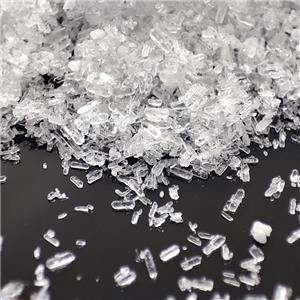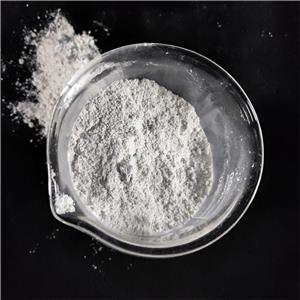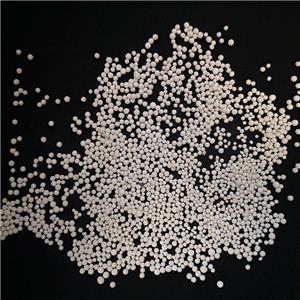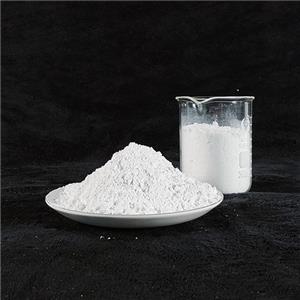What is magnesium oxide mainly used for?
Magnesium oxide (MgO), commonly referred to as magnesia, is a highly versatile chemical compound with numerous applications across various industries. Known for its excellent chemical stability, high melting point, and ability to absorb moisture, magnesium oxide serves critical roles in healthcare, agriculture, construction, and manufacturing. Below, we delve into the diverse applications of magnesium oxide and its importance in these sectors.
1. Healthcare and Medicine
Magnesium oxide has been used in medicine for centuries due to its beneficial effects on human health. It is commonly included in over-the-counter medications and supplements due to its ability to address a range of health concerns.
Magnesium Supplementation
Magnesium is an essential mineral involved in hundreds of biochemical processes in the body, including muscle function, nerve signaling, and the regulation of blood pressure. When individuals experience magnesium deficiency, they may suffer from symptoms such as muscle cramps, irregular heartbeats, fatigue, and weakness. Magnesium oxide is commonly prescribed as a dietary supplement to help restore magnesium levels in the body. It is an effective and cost-efficient way to address magnesium deficiencies, although some individuals may experience digestive discomfort, such as diarrhea, due to the compound’s mild laxative effect.
Antacid Properties
Magnesium oxide is also widely used as an antacid. It works by neutralizing excess stomach acid, providing relief from symptoms of heartburn and indigestion. The compound reacts with hydrochloric acid in the stomach to form magnesium chloride and water, effectively reducing the acidity that causes discomfort. As a result, magnesium oxide is a key ingredient in many over-the-counter antacid preparations, offering a fast and reliable solution to alleviate acid-related discomfort.
Laxative Effects
In addition to its antacid properties, magnesium oxide is used as a laxative. It works by drawing water into the colon, which helps soften stool and promotes bowel movements. This is particularly helpful for individuals suffering from constipation, as it offers a gentle and effective solution. Due to its ability to stimulate bowel movement and relieve constipation, magnesium oxide is frequently included in over-the-counter laxatives.
2. Agriculture
Magnesium oxide plays an essential role in agriculture, where it contributes to both soil health and animal nutrition. It is used as a soil amendment and an animal feed additive, helping to optimize agricultural productivity.
Soil Amendment
Magnesium is a critical nutrient for plants, as it is a central component of chlorophyll, the pigment that facilitates photosynthesis. In soils that are magnesium-deficient, plants may exhibit poor growth and yellowing of leaves. Magnesium oxide is commonly used to correct magnesium deficiencies in soil. When added to the soil, magnesium oxide increases the magnesium content, enhancing soil fertility and promoting better plant growth. This application is particularly important for crops like corn, wheat, and soybeans, which require adequate magnesium for optimal development.
Livestock Nutrition
Magnesium oxide is also important in the livestock sector, where it is used as an additive in animal feed. Animals, especially cattle, require sufficient magnesium intake to maintain healthy muscle function and avoid metabolic disorders. A condition known as grass tetany can occur in livestock grazing on magnesium-deficient pastures. This condition causes muscle spasms, loss of appetite, and even death in severe cases. To prevent grass tetany, magnesium oxide is added to animal feed, ensuring that livestock receive adequate magnesium levels. This is especially crucial during periods when animals are grazing on young, rapidly growing grass, which often lacks sufficient magnesium content.
3. Construction and Refractories
In the construction industry, magnesium oxide is valued for its fire-resistant, moisture-resistant, and thermally stable properties. It is widely used in the production of a variety of construction materials, as well as in refractory applications.
Magnesia-Based Construction Materials
Magnesium oxide is a key ingredient in the manufacture of magnesia-based boards, cements, and mortars. These materials are prized for their fire-resistant properties, making them ideal for use in building materials that require enhanced safety standards. Magnesia-based boards, for example, are often used as wall cladding and flooring materials in buildings, especially in fire-prone areas, as they are highly resistant to high temperatures and fire damage. Additionally, magnesium oxide-based cement is gaining popularity as a more environmentally friendly alternative to traditional Portland cement due to its lower carbon footprint.
Refractories
One of the most significant applications of magnesium oxide is in the field of refractories—materials designed to withstand extremely high temperatures.
Magnesium oxide is a primary component in refractory materials used to line furnaces, kilns, and reactors in industries such as steel manufacturing, cement production, and glass-making. These materials are capable of withstanding temperatures upwards of 2000°C (3632°F) without breaking down, which makes them invaluable in high-temperature industrial processes. Magnesium oxide’s thermal stability and ability to resist chemical attack from molten metals and slags make it a crucial material in these demanding applications.
4. Other Industrial Applications
In addition to its use in healthcare, agriculture, and construction, magnesium oxide has numerous other industrial applications, including:
Electrical Insulation: Magnesium oxide is used as an insulating material in high-temperature environments, such as electric heating elements and light bulbs. Its high melting point and insulating properties make it ideal for these applications.
Water Treatment: Magnesium oxide can be used in water treatment processes, where it helps remove impurities and neutralize acidic water.
Manufacturing of Magnesium Alloys: Magnesium oxide is used in the production of magnesium alloys, which are lightweight and strong materials used in aerospace, automotive, and electronics manufacturing.




